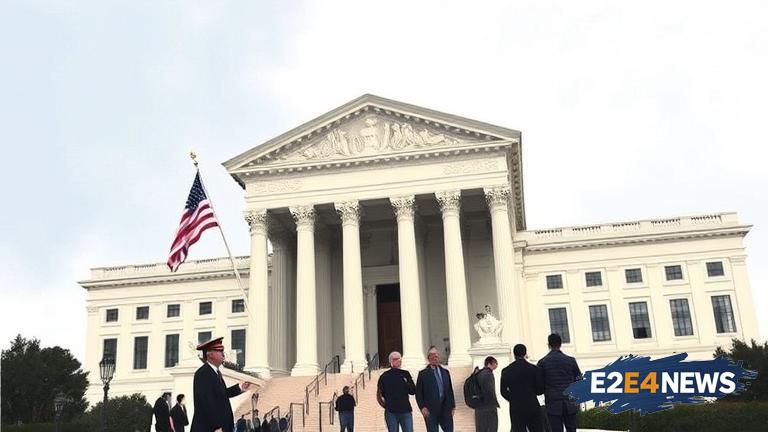In a significant development, a federal appeals court has issued a nationwide injunction, effectively blocking the Trump administration’s order to restrict birthright citizenship. The order, which was announced in 2020, aimed to limit the automatic granting of citizenship to children born in the United States to non-citizen parents. The appeals court’s decision is a major setback for the Trump administration, which had argued that the order was necessary to prevent fraud and abuse of the immigration system. The court, however, found that the order was likely to cause irreparable harm to individuals and families who would be affected by the policy change. The ruling is a victory for immigrant advocacy groups and civil rights organizations, which had challenged the order in court. The groups argued that the order was unconstitutional and would have a disproportionate impact on marginalized communities. The appeals court’s decision is the latest in a series of legal challenges to the Trump administration’s immigration policies. The administration has faced numerous lawsuits and court rulings that have blocked or limited its efforts to restrict immigration and asylum. The birthright citizenship order was one of the most contentious policies introduced by the Trump administration, with many critics arguing that it was an attempt to undermine the fundamental principles of American democracy. The order would have required parents to prove their citizenship or lawful presence in the United States in order to obtain citizenship for their children. The policy change would have affected thousands of families, including those with mixed immigration status. The appeals court’s ruling is a significant blow to the Trump administration’s efforts to restrict immigration and will likely be appealed to the Supreme Court. The case is part of a broader debate about immigration and citizenship in the United States, with many arguing that the country’s immigration system is in need of reform. The Trump administration’s policies have been widely criticized for being overly restrictive and punitive, with many arguing that they are designed to intimidate and deter immigrants from coming to the United States. The appeals court’s decision is a reminder that the judiciary plays a critical role in checking the power of the executive branch and protecting the rights of individuals and communities. The ruling is also a testament to the importance of advocacy and activism in shaping public policy and promoting social justice. As the case continues to make its way through the courts, it is likely to have significant implications for the future of immigration policy in the United States. The appeals court’s decision is a major victory for immigrant rights groups, but it is also a reminder that the struggle for justice and equality is ongoing. The case highlights the need for continued advocacy and activism to protect the rights of marginalized communities and to promote a more just and equitable society.
